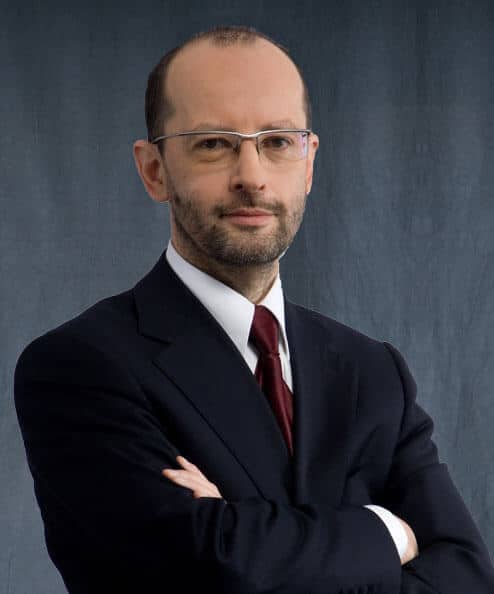Pole position – survey reveals common traits of Polish executives – Part 1
Warsaw, Poland – In its 2016 World Economic Outlook report, the International Monetary Fund concluded that the economies of emerging markets have remained resilient, despite lower capital inflows and higher capital outflows since 2010. Of the emerging markets, Poland’s steady economy, market opportunities and sizeable labour force make it a prime target for investments.

Poland has emerged as one of Europe’s most dynamic and rapidly growing markets since it began its journey towards capitalism and democracy in 1989. The Polish economy has seen consistent and durable evolution from 1992 to the present day, with no negative GDP dynamics. Poland’s population of 38 million makes it the largest former Eastern Bloc economic market in the EU, and it is a highly attractive country for foreign investment, offering competitive labour costs and dynamic industries with room for advanced economic developments.
Significant, unique, and fundamental changes have taken place in Poland’s social and economic realms over the last twenty years, at the macro scale and in the private lives of its citizens. The sudden flowering of international business and personal contact with the wider world in the early ‘90s has juxtaposed Polish preconceptions and stereotypes about Western Europe with reality. As a result, Poles have had a complicated relationship with the rest of the world, combining a lack of confidence with regard to the “developed countries” with a certain arrogance towards outsiders. These self-images were not entirely contradictory, as arrogance can frequently stem from a (misplaced) perception of inferiority. Meanwhile, exactly the same process was happening on the other side of the Iron Curtain, with the general image of Poland and Poles based on sparse information, stereotypes and ideologies. During my stay in the Netherlands in the early ‘90s, I couldn’t persuade my foreign colleagues that in Poland we already had colour television, cable TV or unleaded petrol...
Almost three decades have passed since 1989, and it’s worth examining these perceptions now that the Polish millennial generation has entered the labour market as part of the globalised disruptive wave. Many of the most sought-after executives in Poland have experienced both worlds, and know the old ways and new ways of doing business. The unique traits of Polish managers are frequently touched upon during Executive Search projects and in meetings with middle and senior managers (from both Eastern and Western Europe).
It’s completely natural and very common for people to make self-assessments in relation to others (more or less consciously); and it’s even more reasonable to do so in the broad context of nationalities. How many times do we say or hear that “Americans behave in this way in a specific situation” or “French business culture is such-and-such” or "The Scandinavian way of dealing with people is like this”?
With this in mind, we decided to look into the ways in which Poles position themselves towards other nationalities in the business environment. The study was focused on managers, with the points of reference formed by their counterparts from developed western economies (both expat managers working in Poland, and foreign managers working abroad but closely cooperating with Poles). We asked a large group of Polish managers to make self-assessments (as a whole group, not individuals), and then create comparative evaluations in relation to foreign countries using twenty detailed questions (personal characteristics, human relations, human-company relations).
We were fully aware that many everyday concepts such as creativity, flexibility, independence, etc. are intuitively perceived. The survey was conducted not only among managers but also for them; we will provide them with the results, which we hope will stimulate further, deeper considerations and discussions.
Our next step was to ask the same questions in the opposite direction, finding out what foreign managers think of their Polish counterparts.
Survey participants
A total of 183 managers participated in the survey. The fundamental parameters for selection were the managers’ age, and the number of years they have been working in managerial positions in international organisations. Almost 88% of the participants were over 35, so their business and life experience is inextricably linked to the changes that have taken place over the last twenty years in Poland – in fact, this is the first generation to receive these unique life and career opportunities and actively make use of them. This is also the generation that has gained experience from the transformation to a market economy and the presence of Poland in the international business community, making it particularly relevant for assessing these international contacts.
Nearly 80% of the participants have spent over 7 years in an environment in which they were daily exposed to international contacts (of which 58% have been in the environment over 10 years) – a timeframe conducive to comprehensive summaries and comparisons.
The managerial career span of the participants gives additional credibility to the survey results, as almost 70% of the survey participants have occupied their positions for 10 or more years, and 21% between 5 and 10 years. The vast majority of the participants operate at the highest level of their companies’ hierarchy, and they are responsible for managing all types of operations or key departments. The participants take full responsibility for the international contacts mentioned above (both within the organisation and on the external market) and they are most intensively exposed to these relationships. They have personal experience in working in a multicultural environment, and conversely their visibility contributes to the formation of international opinions about Polish managers.
The majority of the interviewed managers work in companies with German, American or Scandinavian capital (24%, 19% and 16% respectively) with another 5% working for companies with British and French capital, corresponding to the biggest foreign investors in Poland. The study examined various cultural spheres, offering a broad-spectrum sample on one hand, and on the other hand a look at trends within the three biggest cultural groups.
The gender ratio also corresponds to common statistics on business and management positions, with 77% of participants being male and 23% female.
To sum up, the study successfully identified a group of managers whose opinions and experience add important cognitive value to the research, and who are sufficiently representative of the market to secure an exhaustive overview of the internal and external image of Polish managers in relation to their peers and foreign counterparts.
Note: The second part of this article will present the results and the conclusions of the survey, together with a statistical analysis of the impact of these results on the general perception of Polish managers in the domestic and foreign business arenas.
Pedersen & Partners is one of the fastest-growing, fully integrated Executive Search firms worldwide; it is 100% owned by its partners who all work full-time to serve its clients. The firm celebrated its 15th anniversary in January 2016, and to mark this occasion, it has created a timeline web page, featuring key milestones for the firm’s development and has released an anniversary video.
 Dariusz Użycki is the Regional Head of the Industrial Practice for CEE & CIS at Pedersen & Partners, based in Warsaw, Poland. Before joining the firm, he worked for more than 14 years as a senior manager within the recruitment industry focused on executive and senior management placements and B2B consulting across the CEE and CIS regions. He has notable experience across the Industrial, Retail, Technology, and Life Sciences sectors. In addition, Mr. Użycki has professional experience in leadership development and executive coaching and has authored and co-authored articles within the Harvard Business Review Poland and Corporate Governance Review.
Dariusz Użycki is the Regional Head of the Industrial Practice for CEE & CIS at Pedersen & Partners, based in Warsaw, Poland. Before joining the firm, he worked for more than 14 years as a senior manager within the recruitment industry focused on executive and senior management placements and B2B consulting across the CEE and CIS regions. He has notable experience across the Industrial, Retail, Technology, and Life Sciences sectors. In addition, Mr. Użycki has professional experience in leadership development and executive coaching and has authored and co-authored articles within the Harvard Business Review Poland and Corporate Governance Review.
Pedersen & Partners is a leading international Executive Search firm. We operate 56 wholly owned offices in 52 countries across Europe, the Middle East, Africa, Asia & the Americas. Our values Trust, Relationship and Professionalism apply to our interaction with clients as well as executives. More information about Pedersen & Partners is available at www.pedersenandpartners.com
If you would like to conduct an interview with a representative of Pedersen & Partners, or have other media-related requests, please contact: Diana Danu, Marketing and Communications Manager at: diana.danu@pedersenandpartners.com
